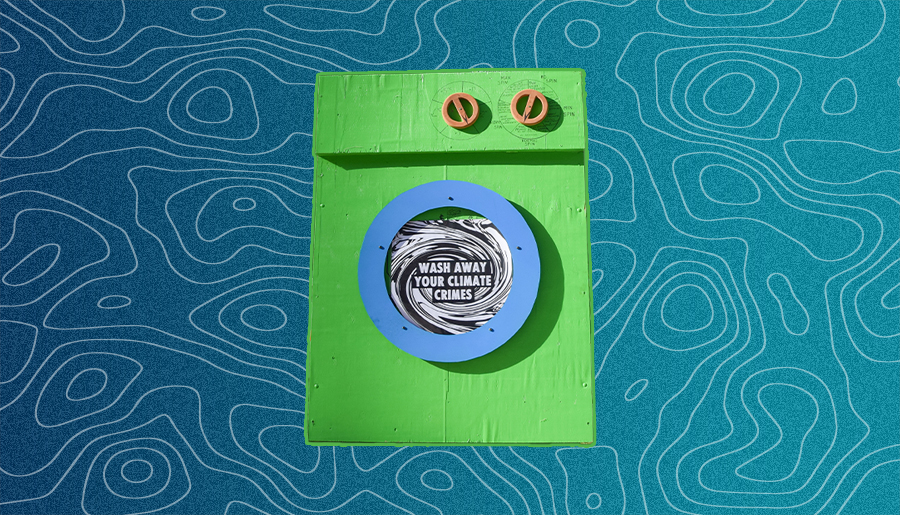Fun fact: Being a human is hard. Some folks have to wrangle their three kids, slog through a five-day workweek, and prevent their marriage from falling apart, all while trying to buy stuff that doesn’t kill our planet.
What’s more, if you’re someone who’s trying to shop sustainably, you probably don’t have the time to research every product that you purchase. Sometimes, you’re in the grocery store, and you choose the toilet paper with the green packaging. You hope that this packaging isn’t misleading and that this TP is sustainably sourced.
However, such purchases have a high chance of being bad for our Earth. ‘Cause according to the Australian Competition and Consumer Commission (ACCC), a lot of our companies are making potentially misleading environmental claims. In a study from March, the ACCC stated that they analysed the environmental claims of 247 different businesses, and 57% of these joints made at least one claim that was concerning.
This means that even if you’re someone who’s researched every toiletpaper brand, you might not actually know which one’s the best for the planet. Unfortunately, the companies making these brands might have lied to you.
On 14 July, the ACCC’s Chair, Gina Cass-Gottlieb, said that this status quo was unacceptable.
“As consumers become more environmentally conscious, businesses need to be honest and transparent when making environmental or sustainability claims so consumers are not being misled,” said Cass-Gottlieb.
“False or misleading claims can undermine consumer trust in all green claims, particularly when consumers are often paying higher prices based on these claims. Similarly, businesses that are taking genuine steps to adopt sustainable practices are put at a competitive disadvantage by businesses that engage in greenwashing.”
Fortunately, the ACCC isn’t lying on the road and doing nothing about this problem. They have released Australia’s greenwashing guidelines. These guidelines assert what our companies should do in order to not make any misleading sustainability claims.
“Businesses must provide clear, accurate, and trustworthy information to consumers about any environmental or sustainability claims and be able to provide evidence to back them up,” said Cass-Gottlieb.
“If you make a claim about the environmental or sustainability benefits of your product or service, make sure it’s right, and if you are unsure or can’t substantiate these claims, then don’t make the claim.”
Want to know what Australia’s greenwashing guidelines consist of? Well, my environmental whippersnappers, you’ve come to the right place.
Australia’s Greenwashing Guidelines
Australia’s greenwashing guidelines are as follows:
Guideline One — Environmental Claims Must Be Truthful and Accurate
If you’re part of an Aussie company, don’t lie about or overstate the environmental claims of your products. This rule shouldn’t need to be said.
Guideline Two — Environmental Claims Must Be Backed Up By Evidence
All of your environmental claims should be backed up by scientific evidence. Additionally, independent evidence is best.
Guideline Three — Businesses Can’t Hide Key Pieces of Environmental Info
When it comes to making environmental claims, you have to give all of your customers the right context. If only a fraction of your product is sustainable, while the rest of it is damaging, you have to tell them the truth.
Guideline Four — Environmental Claims Must Be Specific and Qualified
“Some environmental claims may only be true under certain conditions,” stated the ACCC. “For example, a biodegradable product may only break down at a certain temperature or after a very long period of time.”
“These types of claims can be misleading if the conditions or required steps are not clearly stated or are unlikely to be realised during ordinary consumer use… To reduce the risk of misleading consumers, you should ensure that you provide enough information about what is required for your claims to be true.”
Guideline Five — Environmental Claims Can’t Be Overly Broad or Misleading
If you make any sweeping and super general claims about how sustainable your products are, then quit with this nonsense immediately.
Australia’s Greenwashing Guidelines: What’s Next
As it stands, Australia’s greenwashing guidelines haven’t been set in stone yet. The ACCC is currently calling these guidelines a draft and asking for some public feedback.
“We would like to hear from businesses on whether our draft guidance improves their confidence in making legitimate environmental and sustainability claims,” said Cass-Gottlieb.
“We also want to hear from consumers on how businesses can provide useful and relevant information about any green claims, so they can be confident in the accuracy of these claims.”
The consultation period for Australia’s greenwashing guidelines ends on 15 September. If you want to contribute to this conversation, then please click the link here.
Related: A Guide to Greenwashing So You Can Avoid It
Related: NSW Wind Farms — A New One Is Coming to the Hunter
Read more stories from The Latch and subscribe to our email newsletter.

